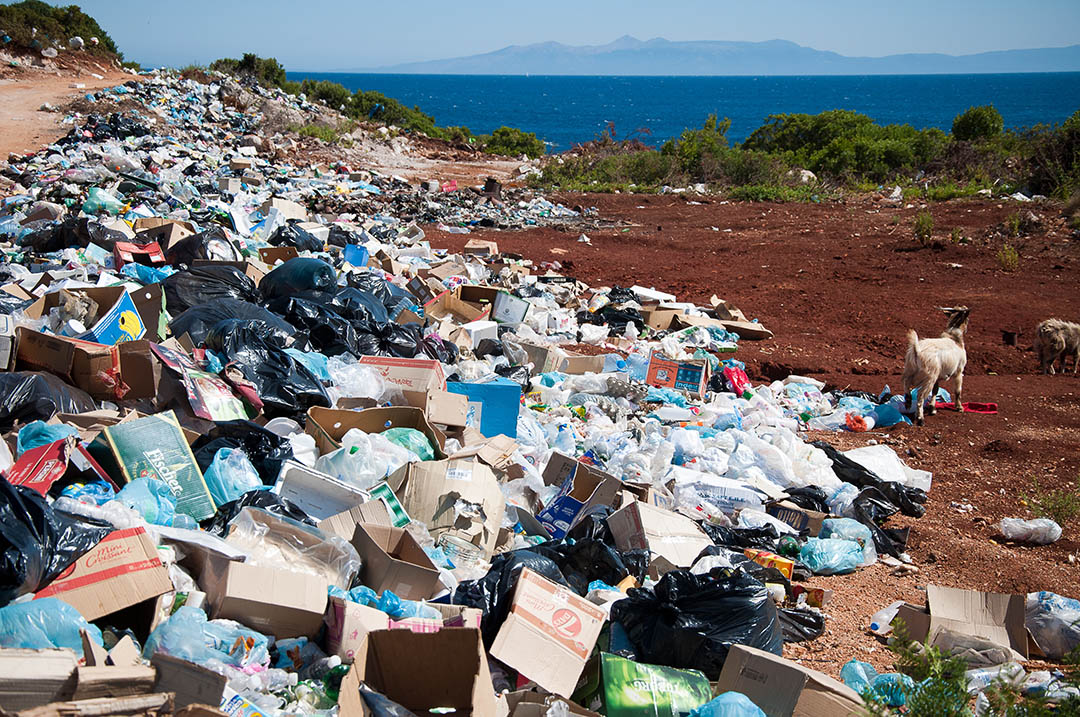Work on Plastic Pollution and Environmentally Sustainable Plastic Trade moved ahead this week in an informal dialogue convened by China and Fiji in the margins of the November meeting of the World Trade Organization’s (WTO) Committee on Trade and Environment (CTE). The event was part of the WTO Trade and Environment Week.
The event launched an “open-ended informal dialogue” among interested WTO members, with the early support of Australia, Barbados, Canada, China, Fiji, and Morocco. The informal dialogue aims to complement existing international processes and to “explore how improved trade cooperation, within the rules and mechanisms of the WTO, could contribute to domestic, regional, and global efforts to reduce plastics pollution and transition to a more circular and environmentally sustainable global plastics economy.” It will do so by “improving transparency, monitoring trade trends, promoting best practices, strengthening policy coherence, identifying scope for collective approaches, [and] assessing capacity and technical assistance needs” and through cooperation with other international efforts on the topic.
Zhang Xiangchen, Ambassador of China to the WTO, underlined the urgency of tackling the plastic pollution problem, and linked the initiative to broader efforts to ensure the WTO remains a relevant forum for trade policy work in the 21st century. He said the plastics initiative is “a tangible sign of WTO reform in action.”
Nazhat Shameem Khan, Ambassador of Fiji to the WTO and Chair of the meeting, called plastic pollution “one of the greatest threats to sustainable development.” She noted the imperative of promoting coherent policies to address environmental concerns.
Presentations by WTO Deputy Director-General Alan Wolff and Aik Hoe Lim, Director of the WTO Trade and Environment Division, noted the broad level of interest among members in plastics trade and plastics pollution – a topic Wolff said had been raised at every CTE meeting since November 2016.
Lim noted that members are already using the WTO’s mechanisms to increase transparency of plastics-related trade measures: some 128 have been notified to the WTO, 80% of which are notifications by developing or least developed country (LDC) members. Most of these measures, Lim explained, relate to technical regulations and standards governing plastic products.
Wolff pointed to several options for coordinated global action that could be pursued at the WTO, including the possibility of reviving negotiations on environmental goods to increase access to environmentally sound plastics and waste management technology, among other things. He also suggested members consider defining principles for coherent and effective trade policy around plastics and plastic waste, monitoring policies and using the Aid for Trade initiative to support moves to a more circular plastics economy.
Steven Stone, Chief of Resources and Markets Branch, UN Environment Programme (UNEP), described consistent support by UN Member States of UNEP’s work on plastic pollution, through multiple resolutions of the UN Environment Assembly (UNEA), including capacity-building work within countries to build more coherent policy frameworks. The need for coherence was also underscored by Lim, who argued that work under the “WTO’s competence can complement the work of environment agencies.”
A presentation by Carolyn Deere Birkbeck, Senior Researcher, Graduate Institute Geneva’s Global Governance Centre, revealed that plastics are deeply embedded in the global economy, and present health, waste management, and other environmental challenges along their lifecycle. Research by the Pew Charitable Trusts, she said, demonstrates the need for policy change across multiple areas, from reducing production to redesigning goods and improving waste management. Deere Birkbeck highlighted governments’ role in providing a policy environment, including on trade policy, that supports businesses to move economic activity “in the right direction.”
Kimberly Botwright, Community Lead, Global Trade and Investment, World Economic Forum (WEF), described work by the Forum on plastics and global trade, and outlined policies that could support a shift to a more circular economy. These policies range from more cohesive standards for waste and plastic products to better information about the recycled plastics market, investment facilitation measures specific to plastics, plastic waste management, and improving compliance with the Basel Convention’s rules, which will apply to a new set of plastic products from January 2021.
Several heads of delegation to the WTO took the floor to underline the importance of the informal dialogue process, and to explain their delegations’ views of its importance for sustainable development priorities.
Chad Blackman, Ambassador of Barbados to the WTO, argued that plastic pollution is a threat to his country’s focus on building a sustainable blue economy, and as such presents a risk to growth in several economic sectors.
Omar Zniber, Ambassador of Morocco to the WTO, explained that his country faces 800,000 tonnes of plastic waste to deal with each year, only 25% of which it manages to recycle, and shared experiences regarding fiscal measures that can be applied to plastics.
Cheryl Spencer, Ambassador of Jamaica to the WTO, described the initiative as “critically important,” especially for small island developing States (SIDS) that are dependent on the natural environment for economic activity. She said her country’s own national regulation banning the use of some single-use plastics in the food and beverage industry has already shown results and is gradually being expanded to other issues.
The informal dialogue process will focus first on opportunities to increase transparency around trade flows and trade policies relating to plastics, starting with a concept paper to outline the issues. [SDG Knowledge Hub Sources]

